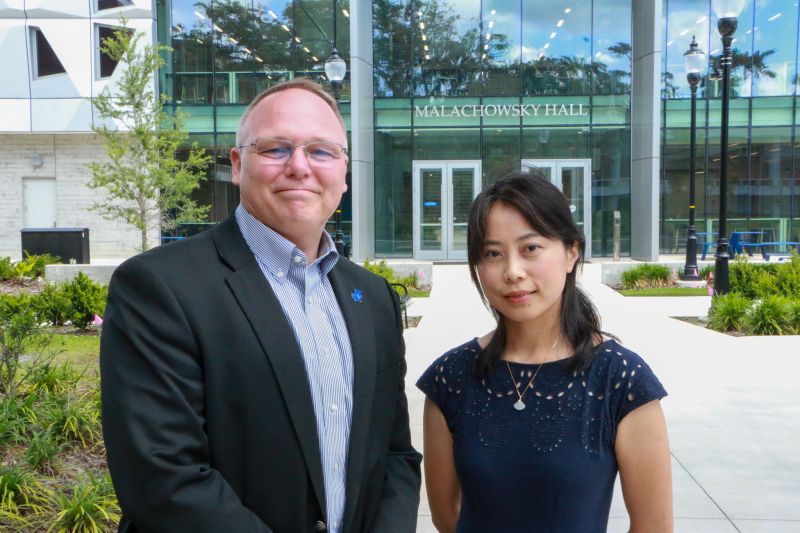
Dr. Jie Fu (PI) has been awarded $1.3 million in funding from the DEVCOM Army Research Laboratory for the project titled “Strategic Planning in Hierarchical Games: Achieving Rapid Dominance in the Uncertain World of Conflict (Shadow),” under Cooperative Agreement #W911NF-25-2-0045. Distinguished Professor Warren Dixon, chair of the Department of Mechanical and Aerospace Engineering at the University of Florida, serves as co-PI on the project.
Led by the University of Florida in collaboration with RTX BBN Technologies, the team will enable a team of robotic and autonomous systems (RASs) to establish strategic advantage in scenarios involving potential adversarial interactions. Fu and Dixon plan to introduce a unified framework that integrates game-theoretic strategic decision-making with flexible multi-agent maneuver algorithms.
Fu’s work utilizes game theory, a branch of mathematics concerned with the analysis of strategies for dealing with competitive situations where the outcome of a participant’s choice of action depends critically on the actions of other participants.
Fu’s team will focus on developing control and decision-making algorithms for a team of robots who navigate in uncertain and unknown environments, while collecting informative data for some inference tasks and gaining team situational awareness. It will focus on sensitive operations such as reconnaissance in contested environments. Other applications for the work could be multi-agent active perception for intrusion detection and security patrolling tasks.
Dixon’s team uses real-time deep learning methods to control the robot interactions. The teams of robots have different capabilities, where some robots have high levels of sensing and communications, whereas other robots have limited functionality. Continuous deep learning methods are used by the few well-equipped robots to understand how to maneuver the larger team, similar to the way a few cowboys can maneuver an entire herd of livestock. By treating each robot as a node and the interaction between the robots as an edge, the multi-agent system can be efficiently modeled as a graph. To leverage the graphical structure of the robotic teams, Dixon and his students are developing new kinds of deep continuous learning graph neural networks and graph attention networks to understand robot interactions and information flow within the network. This structure also allows for agents within the graph to have competing objectives, forming a differential graphical game. Dixon’s team will leverage the graph neural network structures to learn the dynamic interactions among the agents and the optimal decisions, such as when it is advantageous to engage in the competition.
The proposed framework addresses critical challenges in cooperative autonomy, intelligent exploration, and resilient decision-making in uncertain, dynamic environments. Its contributions lay the groundwork for scalable, secure multi-agent systems with applications in environmental monitoring, disaster response, competitive robotics, and other settings involving limited information and adversarial conditions.
Story by: Harrem FH Monkhorst
Marketing & Communications Specialist
UF Electrical and Computer Engineering
March 6, 2025
Check out this original article here: https://news.ece.ufl.edu/2025/05/06/fu-works-to-achieve-strategic-dominance/

